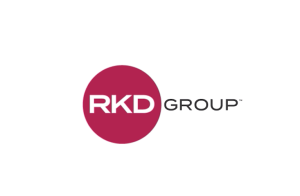The year 2023 was a tough one for fundraising. Healthcare philanthropy was no exception. Healthcare organizations accounted for 13.6% of total dollars reported by the Fundraising Effectiveness Project during the first three quarters of 2023. The data showed that dollars to healthcare organizations declined 2.8% year-over-year and that the median change year-over-year was a decline of 4.6%.
This is why it is always good to check all of the numbers, because national surveys might not be accurate for a particular silo of organizations. According to Alice Ayres, president and CEO of the Association of Healthcare Philanthropy in Arlington, Virginia, data included in the 2023 AHP Report on Giving “showed a positive trajectory” in total fundraising revenue.
“However, the data from the Fundraising Effectiveness Project for Q3 2023 that showed a slight decline in healthcare giving isn’t entirely surprising given the broader economic factors at play. Our members are reporting a range of experiences,” said Ayres. “Healthcare foundations often have deeply personal connections with their donors that transcend broader economic trends. Our members are focusing on maintaining and deepening these relationships in the short term, understanding that a long-term perspective can resonate with donors who are interested in making a lasting impact.”
The broader, national numbers for all types of organizations showed despite the overall decline in donors, dollars had only a marginal year-over-year decrease of 1.1% for the first three quarters of the year. This was largely caused by a decline in small and micro donors, who combined gave between $1 and $500 but accounted for 83.6% of all donors.
Gifts to healthcare tend to be on the larger side, particular grateful patient giving. “Whether you are a hospital fundraiser or a disease state fundraiser, grateful patient programs are and will remain a cornerstone of fundraising,” said Ayres. “These programs directly engage those who have experienced the impact of an illness and high-quality care firsthand. These programs can be incredibly effective as initial outreach efforts because they connect on a deeply personal level, transforming patient gratitude into philanthropic support.”
“There is also substantial research that shows that expressing gratitude can play a significant role in a patient’s mental and physical recovery, and that receiving gratitude can reduce burnout effects and increase performance in clinicians,” said Ayres.
Technology is going to be a key element to the positive trajectory of health-related giving. “AI is poised to be a transformative force in healthcare fundraising, as in many industries. Its capacity to analyze large datasets can uncover patterns and insights that were previously inaccessible, allowing organizations to personalize outreach and tailor their fundraising strategies to the preferences and habits of their donors,” said Ayres. “This can lead to more effective engagement, higher conversion rates, and ultimately, more robust fundraising outcomes.”
The scalability of AI means that it has the potential to benefit organizations of all sizes, but it is likely to be particularly impactful initially for medium-sized organizations. “Large organizations and healthcare systems often already have the resources to invest in sophisticated data analysis and personalized fundraising strategies, and the smallest healthcare foundations may not have the infrastructure to fully leverage AI,” said Ayres. “The key for organizations of any size, however, will be to embrace AI as a complement to, not a replacement for, the human touch that is so vital in philanthropy.”
Embracing a donor-centric approach should be in all aspects of fundraising strategy. “Donors want to feel connected to the cause they are supporting and understand the impact of their contribution. Take the time to understand your donors’ motivations, communicate effectively and transparently, and create opportunities for them to engage with your mission beyond just financial contributions,” said Ayres.








